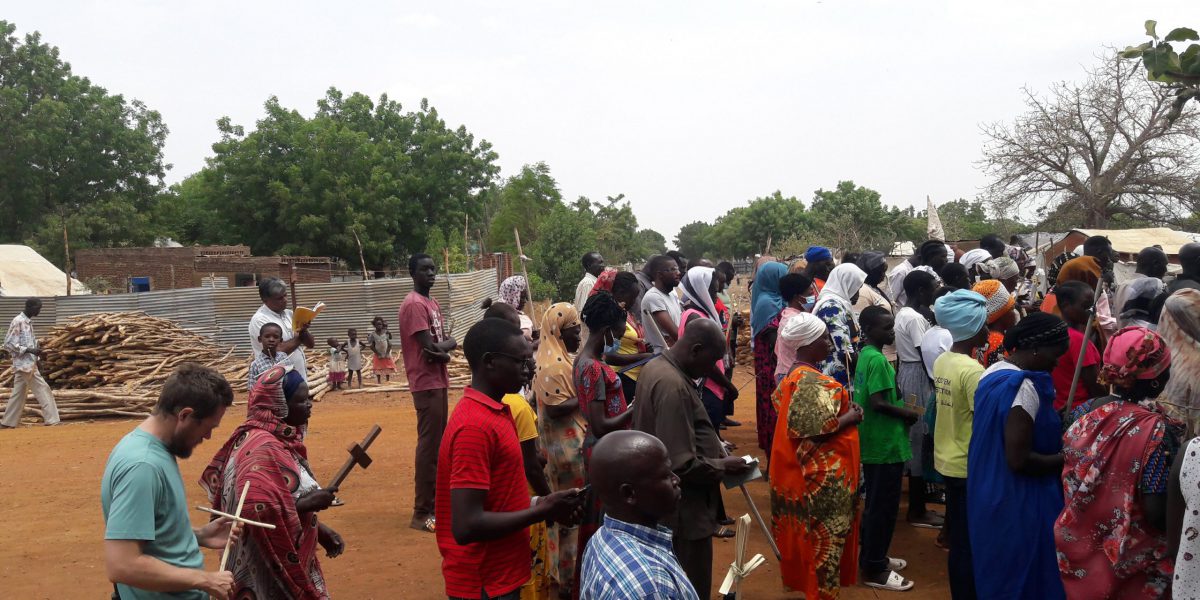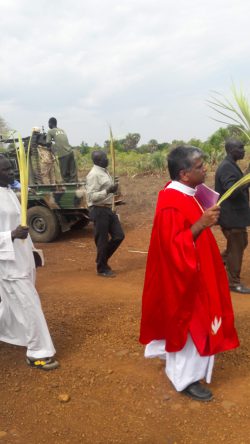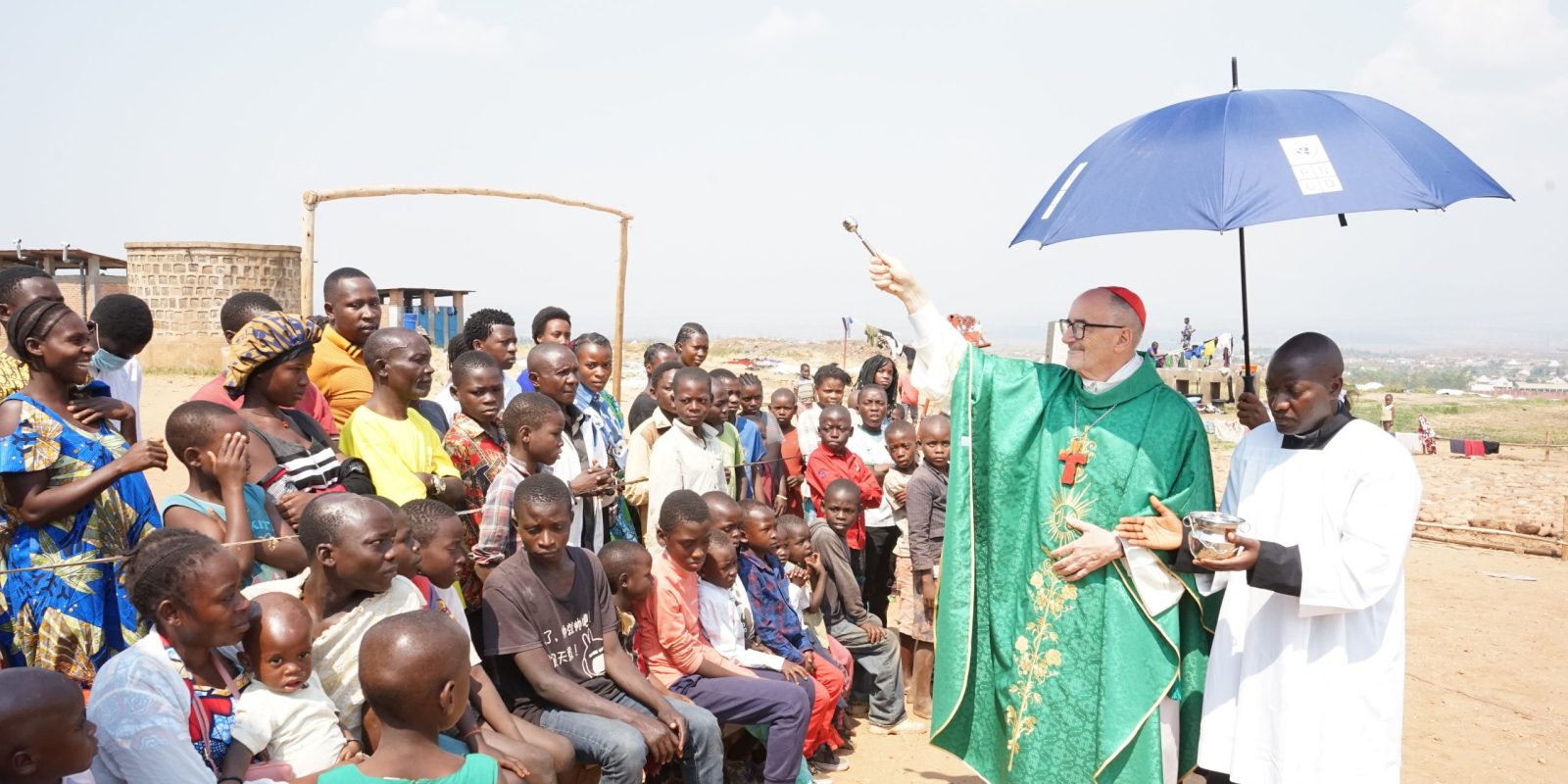
We visited Cango. While drinking coffee the men narrated how they stayed back to protect their property for three weeks after sending women and children away into bush for safety. Days leading up to Easter and weeks that followed were marked by increased alertness, no more loud music in neighborhoods and sounds of ululations missing as deafening silence was felt allover Bunj and neighboring territories because of the ongoing sporadic outbreaks of violence and clashes.
I have been serving at St. Mark’s Parish, Dolo, Bunj in Maban County for over a year now under JRS together with Fr. Fancis Njuguna sj in fragile situations. This county is home to 176,000 refugees in four camps and 70,000 local residents. The parish has been divided into five major centers such as Nila, Gismala, new Guffa, Kewaji and Jamam. Most of these centers have over ten stations at an average served by full time and part time catechists. Most of these stations are totally cut off during rainy season as the area turns inaccessible by road because of flooding.
Apart from usual pastoral services provided, Church has been a platform to spread the messages of peace and reconciliation.
Awareness-raising activities on issues such as sexual and gender based violence, revenge killing, early and forced marriage, and education of children especially girls’ education have been stepped up. We had visiting judges and dignitaries from Juba explaining to people about the national policies and legislation on such matters. During periods of clashes and tension, the County Commissioner Mr. Peter Alberto has addressed the faithful during Holy Mass on many occasions as part of ongoing efforts to promote peace and reconciliation among local communities.
Visiting far distant isolated communities bring glimmers of concrete gestures of hope for the community. We pray together, dialogue and reflect about the joys and struggles of life. Through the help of JRS we provide plastic sheets for the multipurpose chapels people construct. It serves as a space not only for prayers, but also for trainings and meetings for the community. As of now ongoing trainings for our catechists is a huge pastoral priority. These trainings are inclusive as it covers both the faith matters and our social responsibilities as good citizens so that we may live what Jesus came for:



